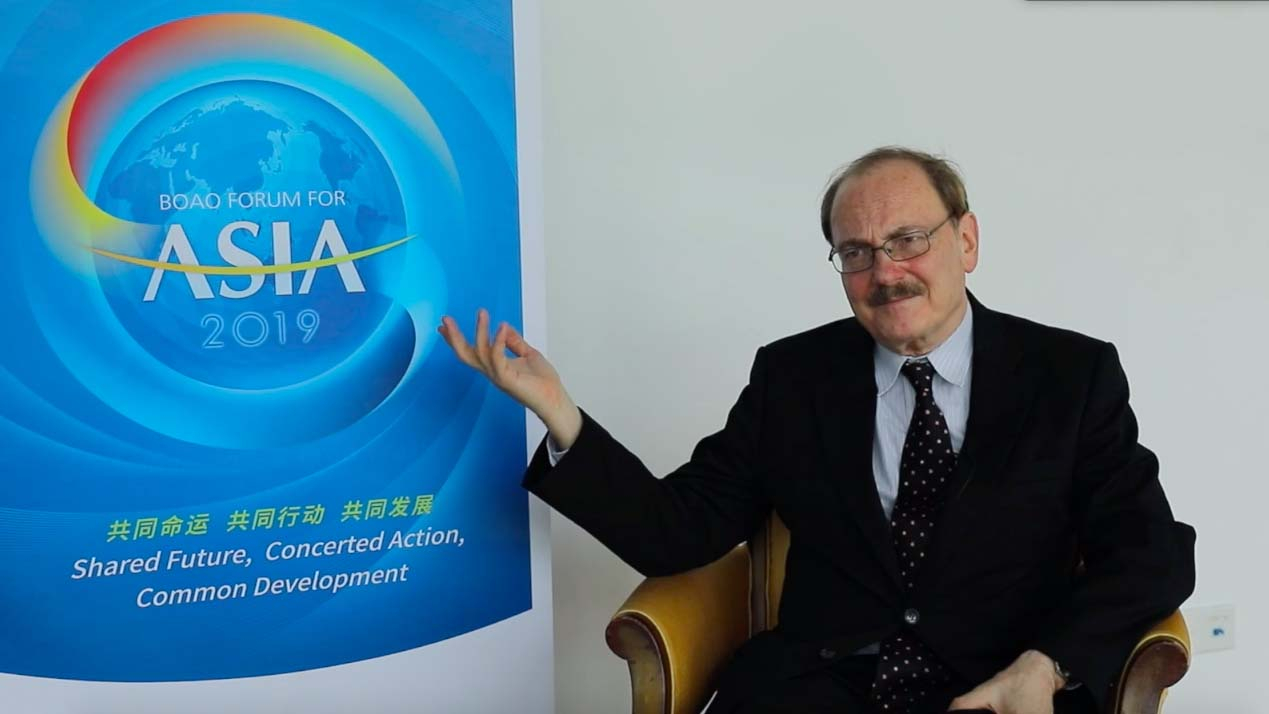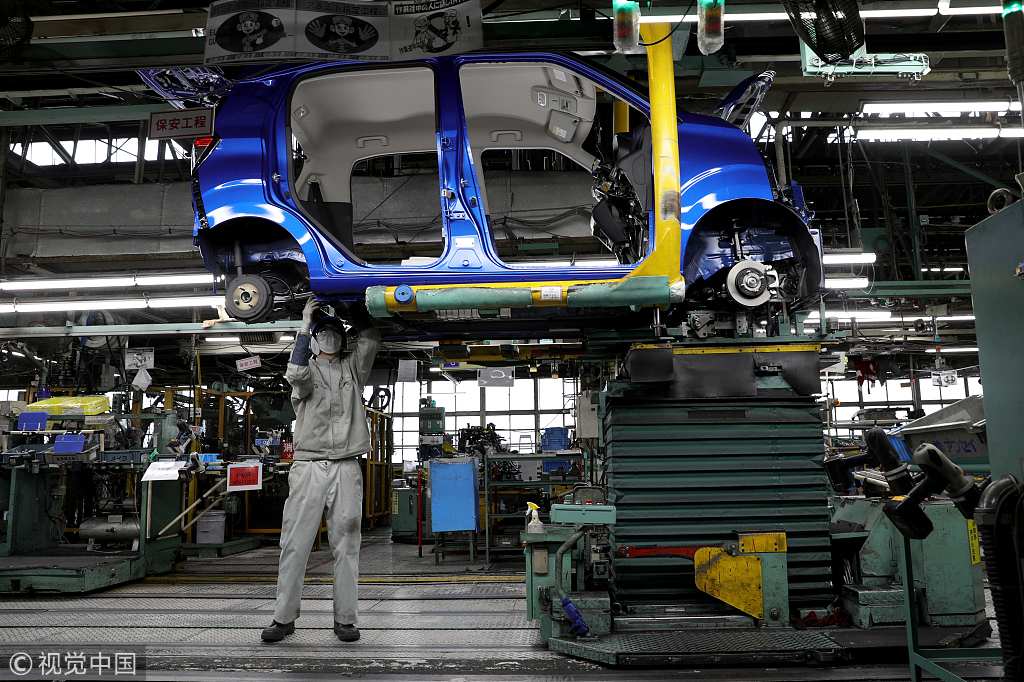
Biz Analysis
10:49, 28-Mar-2019
Boao 2019: Japan's economic slowdown a result of 'abrupt policy changes'
CGTN
03:46

China should avoid abrupt changes to its monetary policy if it wants to guard itself against the economic problems faced by Japan in the 1990s and 2000s, Kent Calder, director of the Reischauer Center for East Asian Studies at John Hopkins University told CGTN during the Boao Forum for Asia.
Calder, an expert on East Asia and former adviser to the U.S. ambassador to Japan, said that the "process of financial normalization should be gradual", and while there was "no doubt greater liberalization would take efficiencies", sudden policy changes similar to the measures Japan took in the 1990s could lead to capital flight and asset price deflation.
For China and other developing economies building and upgrading infrastructure, Calder said "long-term financing was crucial", pointing to the establishment of the Belt and Road Initiative, the Asian Infrastructure Investment Bank and other Chinese institutions.
This year's G20 Summit will be held in Osaka, and promises to be an event which will “create some incentives for Japan to take some leadership”, said Calder, adding that it would be a chance for further discussions between Beijing, Tokyo and Seoul on how to tackle the aging population issue facing each country.
Giving a high-school style report card score to Abenomics, the flagship economic policy of Japanese Prime Minister Shinzo Abe, Calder gave a C+, a score "that might be a fail or barely a pass".
Japan has failed to "move to international standards" in areas such as e-commerce, ride-hailing and transportation, with Calder saying "broadly, Abenomics has not done well".
China will play a key role in the next stage of Japan's economic development, with Calder saying: "If the domestic market isn't revitalized, Japanese firms need to look for markets, and they will look to an increasing degree towards China."

An assembly line of Mitsubishi Motors, March 14, 2019. /CGTN Photo
An assembly line of Mitsubishi Motors, March 14, 2019. /CGTN Photo
Calder said that Japan still enjoys a strong reputation for high-quality electronics, services, engines and micro-motors – "strengths that don’t always meet the eye".
While the country continues to diversify its supply chains in markets across Southeast Asia, Calder said that because of its size and growing influence, "China is going to be a key part of the equation" for the future of Japan’s economy.

SITEMAP
Copyright © 2018 CGTN. Beijing ICP prepared NO.16065310-3
Copyright © 2018 CGTN. Beijing ICP prepared NO.16065310-3